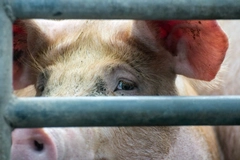
- Industry news
Industry news
- Category news
Category news
- Reports
- Key trends
- Multimedia
- Journal
- Events
- Suppliers
- Home
- Industry news
Industry news
- Category news
Category news
- Reports
- Key trends
- Multimedia
- Events
- Suppliers
Cargill partners on frozen ice cream bead innovations

The MolliCoolz Company a pioneer in developing cryogenically frozen ice cream products – and Cargill have partnered to create ice cream beads that don’t melt or fuse together during standardized distribution and storage.

07/01/08 For most consumers, the term “cryogenic freezing” might call to mind a sci-fi movie. However, the term also is associated with something that can be found in anyone’s kitchen freezer – a delicious ice cream treat.
The MolliCoolz Company – maker of MolliCoolz “incredible ice cream beads” and a pioneer in developing cryogenically frozen ice cream products – and Cargill have partnered to create ice cream beads that don’t melt or fuse together during standardized distribution and storage. This means the beads arrive at retail ready to deliver a high quality ice cream novelty experience to consumers.
“The merging of Cargill’s formulation and ingredients with MolliCoolz manufacturing technology came together perfectly to execute what retailers and consumers want – ice cream beads that are shelf stable in the freezer,” said Bryan Freeman, president, MolliCoolz. “The success we’ve had is a great example of what can happen when a small, entrepreneurial company like MolliCoolz partners with the scientific and marketing experts at Cargill.”
Unlike conventional ice cream, MolliCoolz beads (which are small, individual pellets of ice cream in a variety of flavors and colors) are an ice cream novelty that consumers can literally pour into their mouths for an unforgettable treat – no spoon, no mess, great sensory experience and lots of fun. All MolliCoolz products are made with fresh cream and natural flavors.
During cryogenic freezing, the MolliCoolz product is frozen at a very low temperature, far below its actual freezing point. This allows the beads to be “free flowing” at normal ice cream temperatures.
When MolliCoolz was seeking a way to improve the stability of its retail sherbet – to prevent the beads from freezing and fusing together during storage or while en route from manufacturing facilities to retail locations –it turned to Cargill.
“Our goal is to be the world’s best at pelletizing frozen desserts, such as ice creams and sherbets,” said Freeman. “In January 2007, we asked Cargill to help us make our products more stable at normal ice cream temperatures – and Cargill turned out to already have the technology, formulation capabilities, ingredients and know-how to help us do just that, in a very short period of time.”
Within several months, the improved MolliCoolz pellets – which feature Cargill’s proprietary Daritech stabilizer – began rolling out to more than 12,000 grocery stores nationwide, as well as at water parks, arenas and sports stadiums. The Daritech texturizing system is specifically designed to deliver a wide variety of functionalities, including mouthfeel, flavor release, textural stability, improved shelf life, processing and finished product viscosity control, and freeze/thaw stability.
“Cargill had been experimenting with and developing manufacturing methods around cryogenics for some time,” said John Sweeney, beverage applications team leader, Cargill. “When we met with MolliCoolz, it was immediately clear that a partnership made sense. Cargill had the technical expertise that no other supplier had, and MolliCoolz had a way to commercialize it. Together we developed a solution to make both retailers and consumers happy.”
Based in Stockton, California, MolliCoolz uses patented technology to produce small beads of cryogenically frozen ice cream and sherbet that is free flowing at normal ice cream temperatures. MolliCoolz is made with fresh cream and natural flavor making it a premium ice cream novelty. Unlike conventional ice cream, with one scoop, MolliCoolz free flowing beads are claimed to deliver multiple flavors and colors of beads that pour into your mouth and deliver a unique and unforgettable flavor experience.










